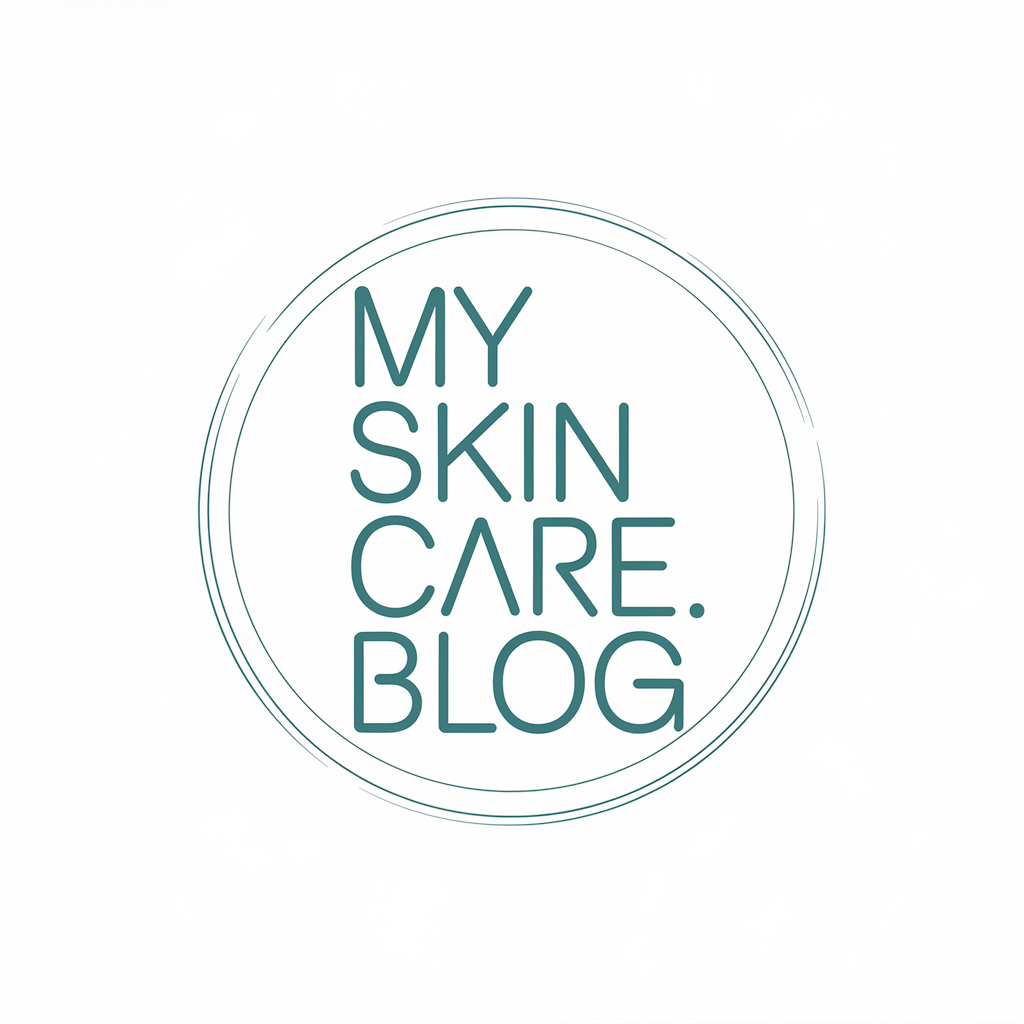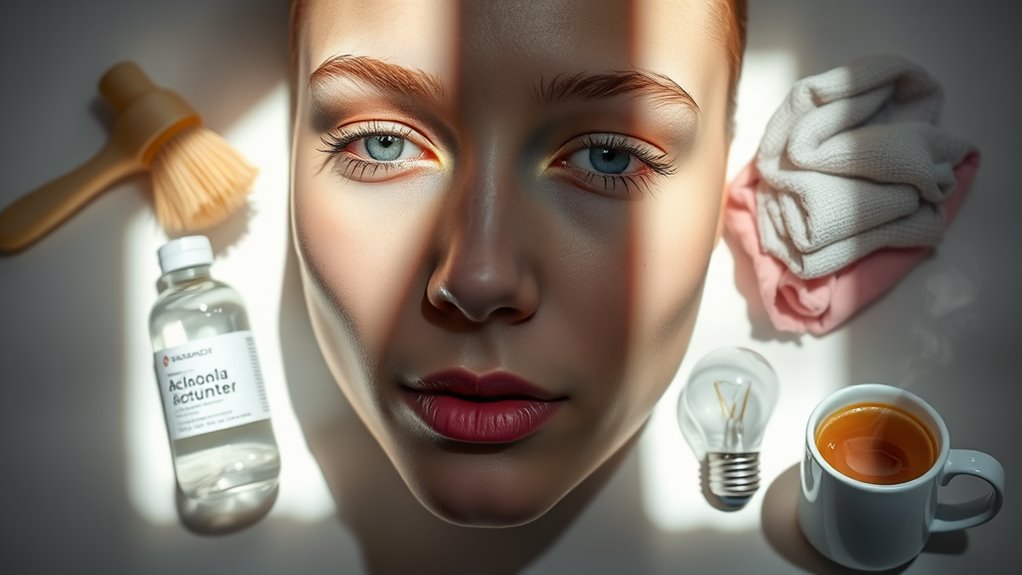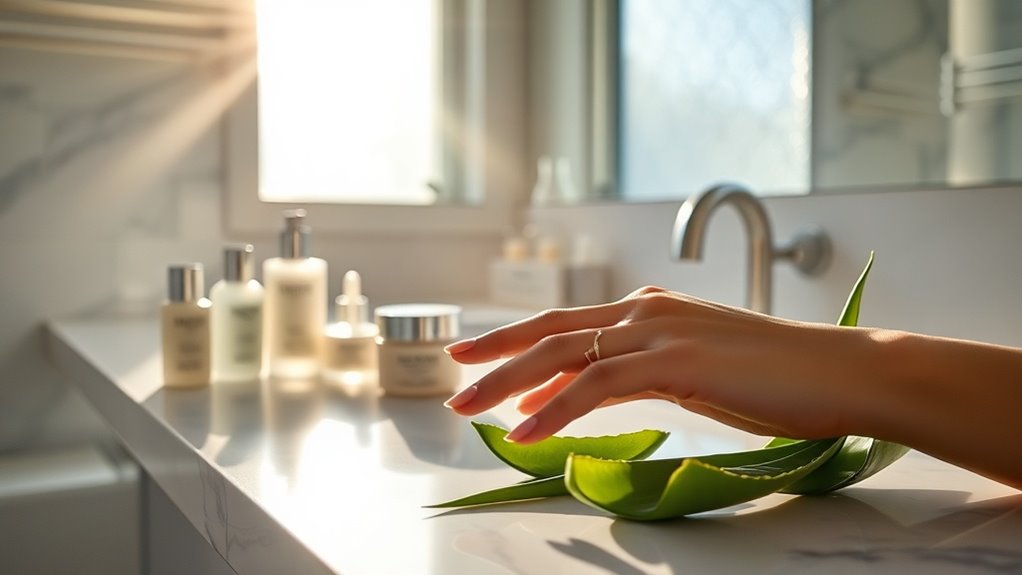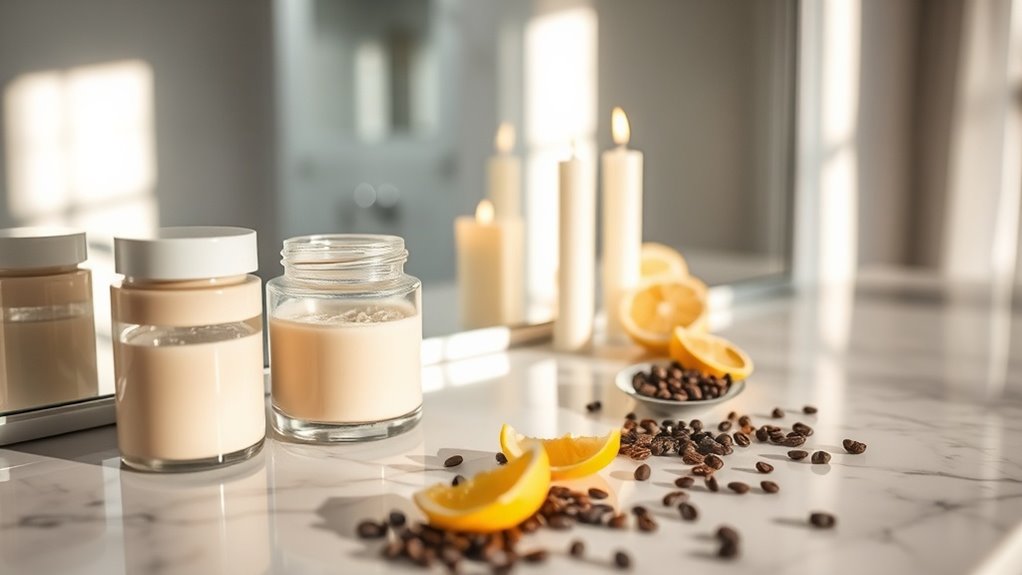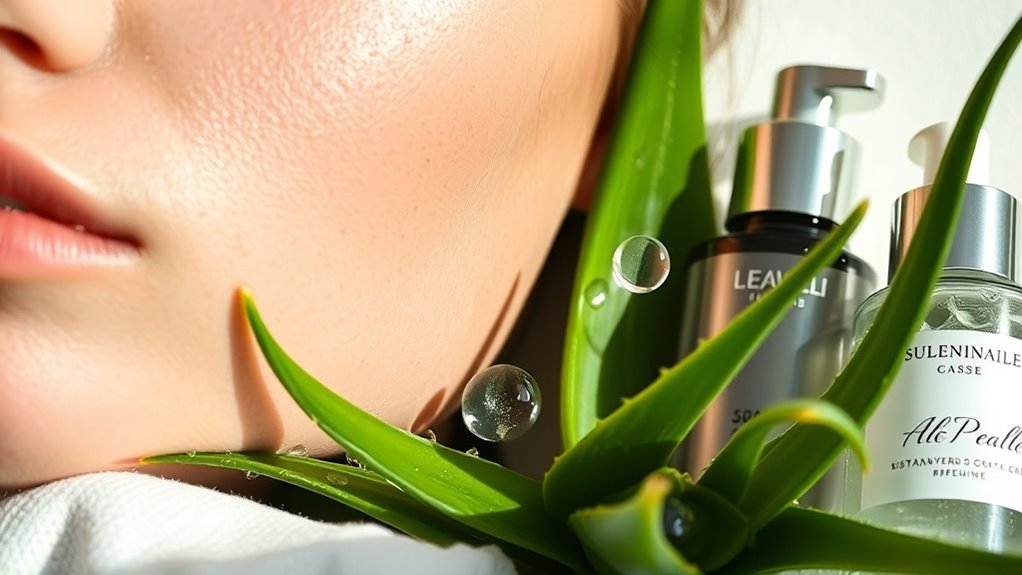5 Things to Avoid If You Have Red or Irritated Skin
Just as a delicate flower needs the right conditions to thrive, your skin requires careful attention when it’s red or irritated. It’s essential to recognize the factors that can exacerbate your condition. By avoiding certain triggers, you can promote healing and restore balance. Let’s explore five specific things you should steer clear of to help your skin recover effectively.
Key Takeaways
- Avoid harsh skincare products containing alcohol, sulfates, or synthetic fragrances that irritate and strip the skin’s natural barrier.
- Steer clear of hot water for cleansing; use lukewarm water to prevent dryness and irritation.
- Limit excessive sun exposure; always apply broad-spectrum sunscreen to protect against UV damage and inflammation.
- Watch out for allergens and irritants; read labels and perform patch tests to identify harmful ingredients.
- Manage stress and ensure adequate sleep, as both contribute to inflammation and hinder skin’s healing process.
Harsh Skincare Products
Harsh skincare products can exacerbate red or irritated skin, leading to discomfort and inflammation. Ingredients like alcohol, sulfates, and synthetic fragrances are common irritation triggers that strip your skin’s natural barrier.
When you choose products containing these harsh components, you’re likely increasing sensitivity and redness.
It’s essential to read labels carefully and opt for gentle, hypoallergenic formulations instead. Look for soothing agents such as aloe vera, chamomile, or hyaluronic acid. Additionally, consider using quick and gentle ways to calm your skin, as they can provide immediate relief from irritation.
Hot Water
How does hot water affect your skin?
Hot water strips your skin of essential oils, leading to dryness and irritation.
When your skin loses its natural moisture barrier, it’s more susceptible to redness and inflammation.
The heat can also dilate blood vessels, worsening existing redness.
If you have sensitive or irritated skin, you should avoid hot showers or baths.
Instead, opt for lukewarm water to cleanse your skin gently.
After bathing, apply a moisturizer to help restore hydration.
By making these adjustments, you can minimize irritation and promote healthier skin. Additionally, remember that over-exfoliation can further compromise your skin’s barrier during the winter months.
Excessive Sun Exposure
Why is excessive sun exposure a concern for your skin?
Prolonged UV exposure can cause significant damage, especially if your skin is already red or irritated.
Here are three reasons to limit your sun exposure:
- Increased Inflammation: UV rays can aggravate existing redness and irritation, leading to further discomfort.
- Skin Damage: Excessive exposure can cause premature aging and worsen skin texture.
- Heightened Sensitivity: Your skin may become more reactive, making it susceptible to burns and irritation.
To protect your skin, seek shade, wear protective clothing, and apply broad-spectrum sunscreen regularly. Additionally, incorporating daily sunscreen application into your routine can significantly enhance your skin’s resilience against UV damage.
Allergens and Irritants
Allergens and irritants can greatly impact the condition of red or irritated skin. Common allergens include certain fragrances, preservatives, and dyes found in skincare products. These substances can trigger inflammation, leading to redness and discomfort. Additionally, irritants like harsh soaps, alcohol-based products, and exfoliants can compromise your skin’s barrier, exacerbating irritation. It’s essential to read labels carefully and perform patch tests before trying new products. If you suspect an allergy, consult a dermatologist for testing and tailored advice. Furthermore, avoiding products with potentially harmful ingredients can significantly improve your skin’s health and comfort.
Stress and Lack of Sleep
What impact do stress and lack of sleep have on red or irritated skin?
Both factors can exacerbate skin conditions by increasing inflammation and disrupting the skin’s barrier function.
Here are three ways they affect your skin:
- Increased Cortisol Production: Stress elevates cortisol levels, leading to inflammation and redness.
- Impaired Skin Repair: Lack of sleep hinders your skin’s ability to regenerate and heal, worsening irritation.
- Dehydration: Stress and sleeplessness can result in moisture loss, making your skin appear dull and irritated.
Additionally, chronic stress can trigger hormonal changes that further contribute to skin issues, making it vital to manage stress effectively. Managing stress and prioritizing sleep are essential for maintaining healthy skin.
